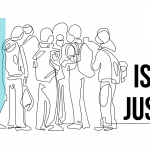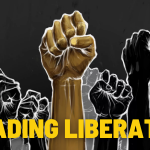
Continuing the Fight for Educational Justice
Over the 23 years of TAF’s growth and expansion, one thing has always remained the same — our mission to eliminate race-based disparities in education by transforming learning systems for teachers and students of color.
While the rest of the country might finally be waking up to the deep-rooted reality of racism upheld by biased institutions & systems, TAF has been diligently pursuing and advocating for educational justice across our schools, our pedagogy, our programs, and our organization.
Now more than ever, with the issues of racial injustice reaching a boiling point, TAF is fiercely committed to furthering our role and responsibility in promoting racial equity and anti-racist culture, both in and outside of the classroom.
How do we do this?
It starts by looking at ourselves and asking: are we as an organization doing our utmost to uphold the imperative values we preach? If not, how can this trickle down to our schools? These are the questions that stirred two of TAF’s Instructional Coaches to begin addressing the lack of racial equity seen in their schools.
“Just being a teacher doesn’t mean you are an advocate — you are part of a structure that is inherently racist. So, if you’re part of this structure that was not made to work for Black and Brown students, and you’re not doing anything to subvert it or disrupt it, how can we expect things to change?” says Pete Schoen, TAF’s Instructional Coach at Roosevelt Elementary.
What started out as an honest conversation about race soon became a mission to unpack and dismantle the patterns of inequity our coaches witnessed at the school level. Early last year, they discussed these issues with Nicole Franklin, parent of a TAF@Saghalie student and Chief Equity Officer at King County IT, who later invited them to a 5-day racial equity training that would further explore the dominance and deep-rooted history of systemic racism.
Hosted by King County, this multi-day training provided attendees with useful practices and information to address racism from an organizational standpoint. “It was really helpful for me to learn language and concepts to discuss these topics grounded in critical race theory that I wasn’t aware of but did a really good job of articulating the inequities we saw,” says Schoen.
“Just being a teacher doesn’t mean you are an advocate — you are part of a structure that is inherently racist.“
Pete Schoen
Instructional Coach at Roosevelt Elementary, Technology Access Foundation
Putting it to practice
After sharing this experience with the team, the coaches took it upon themselves to develop a series of racial equity sessions for the entire staff. The sessions took place last July during TAF’s annual staff retreat, focusing primarily on addressing the dominant white racial narrative, recognizing white supremacist policies and practices, and entering the difficult but necessary conversations that unveil how we still hold onto our own racial biases.
While this did generate the first wave of transparency amongst staff, it was clear there was still more to unpack. Seeking to further the conversation, Dr. Heather Lechner, TAF’s Executive Director of Education, worked in tandem with TAF’s grant writer to secure $5,000 from the Teaching Equity Network (TEN). The funding would provide all staff, including those at our partner schools, with equity-in-education workshops led by Jahmad Canley, CEO & Senior Consultant of Potential Unleashed.
“We looked at a number of organizations and decided that we wanted to choose one that was locally-led, would understand our unique landscape, and was led by a person of color,” Lechner shared. “It was important that we felt comfortable entering into a relationship with them because this would be ongoing work.”
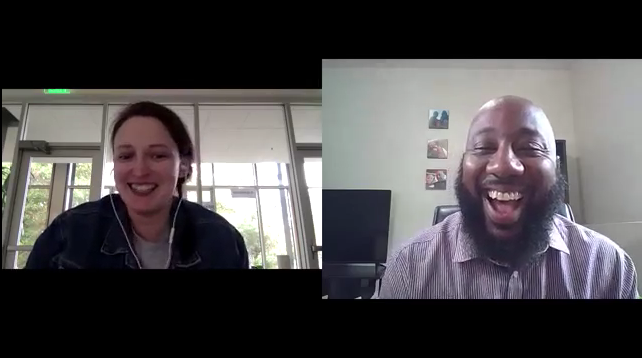
In late January of this year, we began our yearly series with Canley, initiating what would become the second wave of transparency but this time on an organizational level. Over the course of four in-depth trainings, our staff and school partners delved deep into the topic of racism, engaging in critical conversations and developing a common understanding of language and concepts to better ground our work in racial equity.
“Jahmad was a really engaging speaker and hit a lot of topics that we were hoping to get more information on, specifically the historical background on structural racism and how these dominantly Euro-centric structures are basically tenants of white supremacy,” responded a participating staff member.
But the work doesn’t stop there — to truly dismantle the oppressive patterns within our education system, we must continue to learn and find new ways to further integrate racial equity into our conversations, methodology and teaching practice.
Bringing in the experts to further the conversation
“We have worked hard to connect with speakers and authors with expertise in anti-racist pedagogy and racial justice work to better serve our teachers and our staff,” says Denise McLean, Curriculum Development & Integration Manager at TAF. “As coaches, we intend to continue centering the voices and experiences of our students and teachers of color, while providing staff with high-quality information, positive practice, and continuous improvement in working for our students.”
This was most recently seen in the 2020 STEMbyTAF Teacher Institute McLean organized this August. Apart from professional development, over 120 teachers and administrators engaged in mutilple activities that pushed them beyond their comfort zones, requiring them to assess their own racial biases and the role they have played in perpetuating white supremacist culture.
To further explore the topic of race and justice in educational spaces, Seattle author Ijeoma Oluo was invited to speak to teachers and partners across our educational programs (TAF Academies, STEMbyTAF School Transformation, and Network for EdWork) about the urgency and importance of fighting racism in school settings.
“Every single year our students are losing their childhood. We have to do everything we can to save them” shares Oluo. “We have to fight, we have to make them know they are worth a revolution. They are worth this change.”
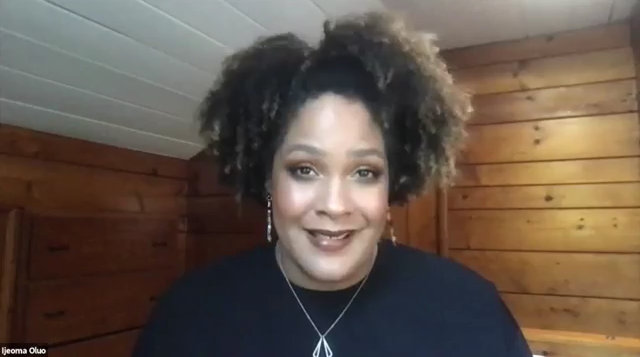
Students are absolutely worth the change, but how does this change play out in the classroom?
Three words: Project-based learning.
“The STEMbyTAF Educational Framework heavily centers around project-based learning, an action-oriented learning approach, which not only creates space for students to determine their learning relevant to their identities, interests, and communities, but also challenges the dominant white Euro-centric educational model built on individualism, standard objectivity, and power hoarding,” explains McLean.
By putting student-centered inquiry at the core of classroom practice, project-based learning can be a powerful anti-racist teaching method that not only defies oppressive ideologies, but encourages students of color to take agency over their education in a way that honors and reflects the experiences of Black and Brown youth.
This is crucial in a state where 89% of educators are white compared to 47% of their students being of color. Not only are we visibly failing to diversify our teaching force, we are setting up our students of color to face racial adversity and discrimination in a system dominated and led by white teachers, leaders, and school boards. Yes, we can all point fingers at the overarching matter of structural racism for corrupting our schools, but it is just as much our responsibility to address and fix the inequities we see on a daily basis.
“We have to fight, we have to make them know they are worth a revolution.”
Ijeoma Oluo
Seattle-based author & New York Times Best Seller So You Want To Talk About Race
Educators, leaders, administrators, school boards, faculty – now is the time. We need everyone in their respective positions to learn, listen, engage, reflect, and do the work it takes to dismantle this deeply entrenched, inherently racist, unjust education system. We need to prioritize our Black and Brown youth, especially when we are so disproportionately far from reaching racial parity. We need to create a future of learning for our children that not only reflects their skin color, but values their cultures, identities, and existence.
There are no “troubled students,” just troubled systems. Join us in the fight for educational justice — not only when it’s trending, but for the next 23 years and beyond.


